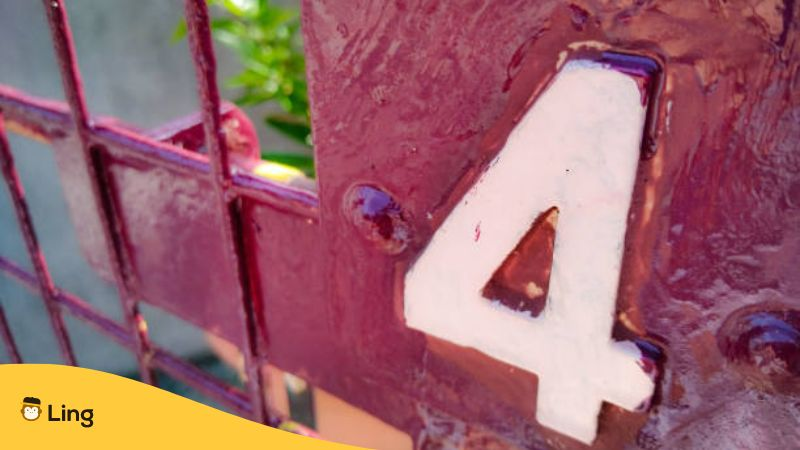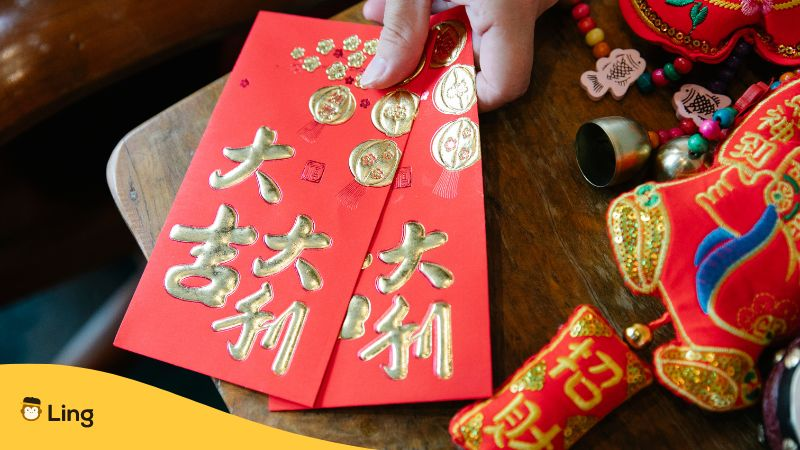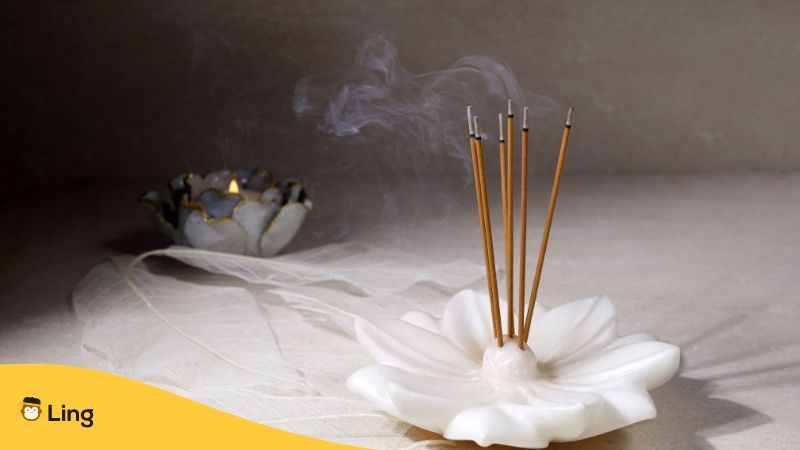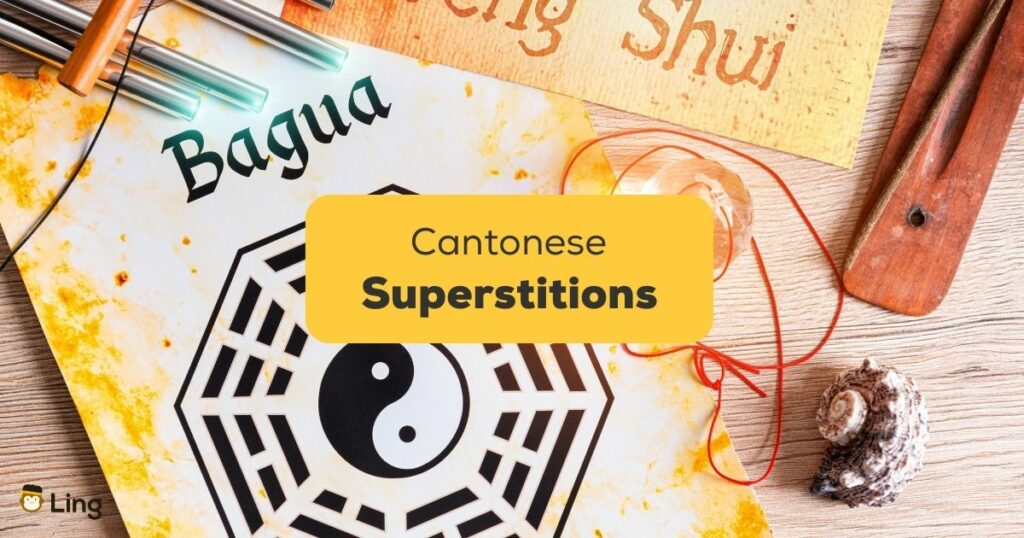Step into the intriguing world of Cantonese superstitions, where ancient beliefs and modern life blend in a fascinating tapestry of customs and practices. From the auspicious symbolism of the number 8 to the cautionary tales of taboo numbers like 4, Cantonese superstitions are deeply woven into the fabric of daily life. In this post, we’ll explore all the Cantonese superstitions that every traveler should know before visiting the country. Excited to learn more? Wear your hats, except for the green hat, and read below!
Superstitions In Cantonese
Cantonese superstitions or “迷信” (mei4 seun3) weave a fascinating tapestry within the region’s culture. These beliefs are not mere quirks but are deeply woven into the daily lives of Cantonese communities, shaping their customs and traditions. According to the locals, superstitions are very much rooted in a quest for harmony and balance of energies or feng shui.
Another important aspect is numerology, a prominent element where numbers are believed to influence crucial life decisions, from weddings to business ventures. For instance, the Cantonese believe that numbers 4 and 9 are lucky, while 3 and 8 are unlucky. They also believe that placing certain numbers of objects in a certain order can attract good fortune or bad luck. However, this is not always the case, as some Cantonese people disregard these superstitions altogether.
Common Cantonese Superstitions
Step into the enchanting world of Cantonese superstitions, where ancient beliefs shape daily life, and intriguing rituals span generations. Join us for a captivating journey into this rich tapestry of cultural wisdom that continues to enchant millions. Superstition and centuries-old traditions await your exploration!

Number 4 – 四 (Sei)
The Cantonese term for “death” has the same sound as the number 4, which is why it is seen as an unlucky number in East Asian cultures. The number 4 is frequently omitted from phone numbers, car plates, and addresses.
Number 8 – 八 (Baat)
On the other hand, the Cantonese term for “wealth” or “prosperity” sounds a lot like the number 8, which is seen to be very lucky. Phone numbers and license plates with the number 8 are frequently purchased at a premium.

Red Envelopes 利是 (Lai see)
Giving red envelopes with money inside is traditional on important occasions like Chinese New Year or weddings as a sign of luck and wealth. Children and single people are typically the recipients of these envelopes.
Taboos During Ghost Month
It is thought that the dead spirits roam the earth during the seventh lunar month, which is known as Ghost Month. In order to prevent bad luck, many Cantonese people steer clear of making significant life decisions, getting married, or moving during this month.

Feng Shui
Feng Shui, the art of organizing one’s environment to balance with natural elements and energy flows, is highly valued in Cantonese culture. It is said that good Feng Shui can bring luck and wealth, while bad arrangements can bring bad luck.
Dream Interpretation
Dreams have special meaning in Cantonese culture, and there are numerous ways to interpret dream symbols. For instance, having a dream of a snake is frequently interpreted as being unlucky, whereas having a dream of water may be auspicious.
Lucky Colors
In Cantonese culture, red is the most auspicious hue and is said to be lucky. It frequently evokes feelings of happiness, celebration, and luck. On the other hand, white is connected to death and grief.

Avoiding Whistling at Night
Cantonese belief holds that whistling at night draws ghosts and spirits. Many individuals refrain from whistling at night to avoid luring unwelcome otherworldly beings. And speaking of night, another important belief is that sweeping the floor at this time of the day is frowned upon in Cantonese culture. Sweeping away dirt and dust in the dark is a metaphor for sweeping away luck and fortune.

Breaking Mirrors
Similar to Western superstitions, breaking a mirror is believed to bring seven years of bad luck in Cantonese culture. This concept is based on the notion that mirrors reflect the soul, and therefore shattered mirrors might be harmful to the soul.
Words Related To Cantonese Superstitions
Explore these linguistic gems and offer a glimpse into ancient beliefs, customs, and the fascinating interplay between language and culture!
| English Word | Cantonese | Pronunciation |
|---|---|---|
| Taboos | 忌讳 | gei6 wai6 |
| Lucky | 幸运 | hang6 wan6 |
| Unlucky | 唔啉 | m4 lam2 |
| Red | 红色 | hung4 sik1 |
| Dragon | 龙 | lung4 |
| Phoenix | 凤凰 | fung6 wong4 |
| Yin and Yang | 阴阳 | jam1 joeng4 |
| Jade | 玉 | juk6 |
| Amulet | 护身符 | wu6 san1 fu6 |
| Talisman | 符咒 | fu6 zau3 |
| Ancestral Altar | 家神台 | gaa1 san4 toi4 |
| Ghost | 鬼 | gwai2 |
| Sacrifice | 祭品 | zai3 ban2 |
| Incense | 香 | hoeng1 |
| Offerings | 香烛 | hoeng1 zuk1 |
| Yuanbao (Gold Ingot) | 元宝 | jyun4 bou2 |
| Dragon Gates | 龙门 | lung4 mun4 |
| Feng Shui Master | 风水师傅 | fung1 seoi2 si1 fu6 |
| Green Hats | 绿帽子 | luk6 mou6 zi2 |
| Incense Sticks | 香 | hoeng1 |

Learn Cantonese With Ling
Enjoyed this post? If you did, then you to check out our guides for Malay and Mongolian superstitions.
Are quirky Hong Kong superstitions piquing your curiosity? From superstitions that revolve around sounds similar to intriguing Chinese zodiac beliefs, there’s a whole world of traditions to explore within Chinese culture. But why stop there?
Introducing Ling, your passport to linguistic adventure! Ling isn’t your run-of-the-mill language-learning app; it’s a dynamic and user-friendly companion that’s just a tap away from Google Play and the App Store! Whether you’re starting from scratch and craving the basics, or you’re a seasoned language explorer looking to finesse your skills, Ling is your trusty sidekick through it all.



































































